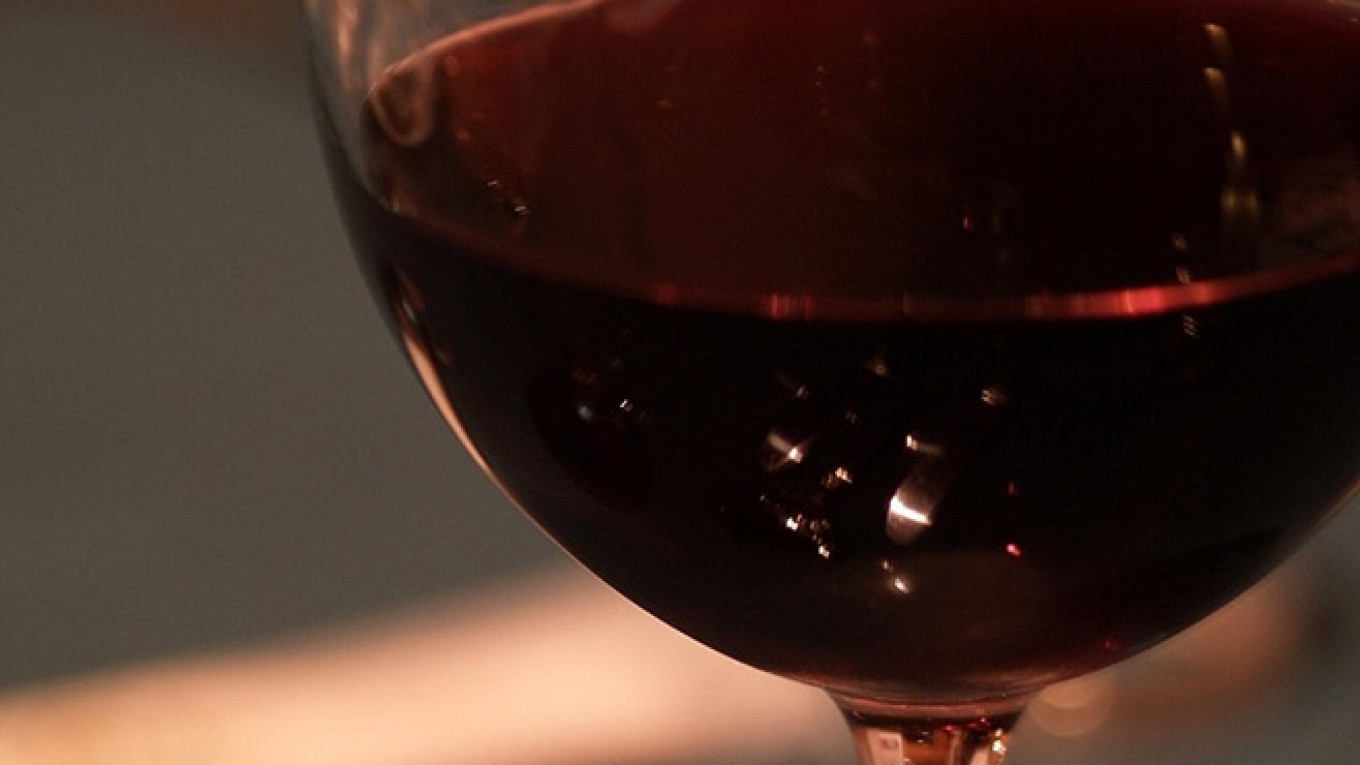While Russia was publicly wading into a war of words and sanctions with the West this year, the presidential administration bought more than a million bottles of wine from Europe — stocking up on more than its staff can possibly drink or serve out at receptions, a news report said.
Wine is not included in a ban of food imports from the European Union and other Western powers that Moscow introduced this month in response to Western sanctions over the Ukraine crisis, but the volume of government wine imports shows a remarkable increase from a year earlier.
The Production Supply Enterprise, or PPP — which is run by the presidential administration and is in charge of equipping government agencies with everything they need to run smoothly, according to its website — had more than 1 million bottles of wine delivered in the first six months of this year, RBC reported Monday, citing a Federal Customs Service report. That's 26 percent more than during the same period last year, the report said.
"A million bottles clearly exceeds the needs of the government staff," the business news agency deadpanned. If an average reception-goer drinks half a bottle of wine at an event, the volume would allow the government to host — and get moderately tipsy — more than 5,000 people every day of the year.
A spokesman for the Office for Presidential Affairs, Viktor Khrekov, told RBC that the wine imported by the supply agency is then sold off to various domestic organizations.
"An enterprise or organization that is holding an event purchases alcohol and products in accordance with procedures laid out by the current law," Khrekov was quoted as saying.
Some of these event holders appear to be wine merchants offering Kremlin-selected vintages to their customers. For instance, a wine seller that operates an online shop and a liquor store in Moscow declares on its website that its bottles of Spanish rose sparkling wine Marina Espumante Rosado carry a numbered hologram from the presidential supply agency. A bottle sells online for 720 rubles ($20).
The supply agency's revenues last year reached 6.5 billion rubles ($181 million), RBC reported, citing SPARK, a financial database run by Interfax.
However, Khrekov said that liquor sales accounted for a mere 2.4 percent of the agency's revenues. "This is a new direction for PPP and is not an essential one for the company," he was quoted as saying.
As Moscow imposed its own measures in response to Western sanctions, cutting off imports of dairy, fruit, meat and more, some Russians expressed fears that the flow of European wine could soon also get the ax.
Adding to their concerns, vintners in Crimea, the peninsula annexed by Moscow in spring, appealed to President Vladimir Putin last month to ban wine imports from the European Union, which account for a quarter of Russia's wine consumption, RBC reported at that time.
According to the winemakers, these "fair measures" would support Crimean vineyards and offset the negative impact of EU sanctions on Crimean exports, ITAR-Tass reported, citing a letter from the head of Crimea's Bureau of Grapes and Wine.
A Message from The Moscow Times:
Dear readers,
We are facing unprecedented challenges. Russia's Prosecutor General's Office has designated The Moscow Times as an "undesirable" organization, criminalizing our work and putting our staff at risk of prosecution. This follows our earlier unjust labeling as a "foreign agent."
These actions are direct attempts to silence independent journalism in Russia. The authorities claim our work "discredits the decisions of the Russian leadership." We see things differently: we strive to provide accurate, unbiased reporting on Russia.
We, the journalists of The Moscow Times, refuse to be silenced. But to continue our work, we need your help.
Your support, no matter how small, makes a world of difference. If you can, please support us monthly starting from just $2. It's quick to set up, and every contribution makes a significant impact.
By supporting The Moscow Times, you're defending open, independent journalism in the face of repression. Thank you for standing with us.
Remind me later.






